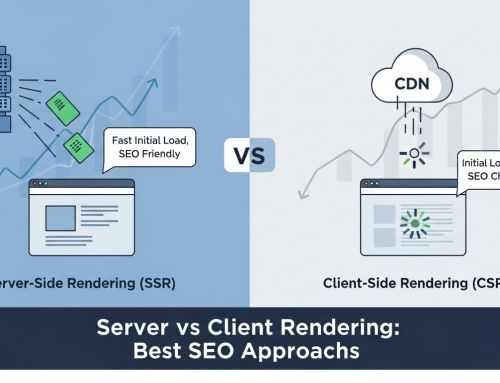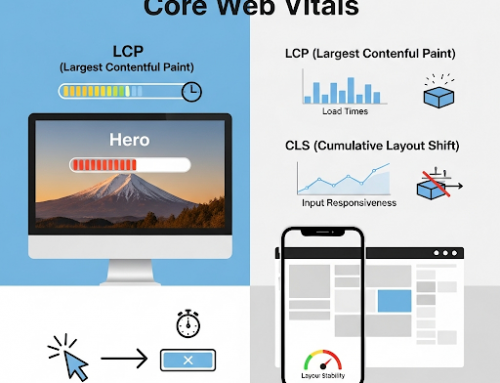What is technical SEO?
Technical SEO involves optimizing the technical aspects of a website to improve its search engine visibility and ensure it can be crawled and indexed efficiently. This includes factors such as website speed, mobile-friendliness, crawlability, site structure, indexing, schema markup, URL structure, security (HTTPS), and other technical elements that impact a website’s search engine performance. The goal of technical SEO is to make it easier for search engines to understand and index the content, ultimately improving the website’s organic search rankings and visibility.
Why is technical SEO important?
Technical SEO is crucial because it ensures that a website is structured and optimized in a way that search engines can easily crawl, interpret, and index its content. By addressing technical aspects such as site speed, mobile-friendliness, crawlability, and security, technical SEO helps to:
1. Improve Search Engine Visibility: By addressing technical issues, a website can appear more favorably in search engine results, leading to increased organic traffic.
2. Enhance User Experience: Technical optimizations such as faster loading times and mobile responsiveness lead to a better user experience, which can reduce bounce rates and improve engagement.
3. Support Content Discoverability: Proper technical SEO practices ensure that search engines can efficiently discover, index, and display a website’s content in search results, improving its visibility to potential visitors.
4. Compete Effectively: In a competitive online landscape, strong technical SEO can provide a competitive edge by ensuring a website is well-optimized for search engines, potentially resulting in higher rankings.
Overall, technical SEO forms the foundation for a website’s search engine optimization efforts, directly impacting its visibility, user experience, and ability to compete effectively in the online space.
Understanding Technical SEO
Understanding technical SEO involves grasping the intricacies of optimizing a website’s technical aspects to enhance its search engine visibility. This includes focusing on elements such as crawlability, site speed, mobile-friendliness, indexing, schema markup, URL structure, and security measures like HTTPS encryption. By mastering technical SEO, website owners can ensure that search engines can efficiently interpret and index their content, ultimately leading to improved organic search rankings and visibility.
The Ultimate Guide to Technical SEO
1. Crawlability: Ensure search engines can access and crawl your website effectively by using a clear site structure, XML sitemaps, and robots.txt directives to control what should and shouldn’t be crawled.
2. Site Speed: Optimize your website’s loading speed by compressing images, leveraging browser caching, and minimizing HTTP requests to enhance user experience and search engine rankings.
3. Mobile-Friendliness: With mobile-first indexing, it’s crucial to have a responsive design, ensuring your website functions well on various devices.
4. Indexing: Use meta tags, canonical tags, and noindex directives strategically to control how search engines index your content, preventing duplicate content issues.
5. Schema Markup: Implement structured data to help search engines understand your content better, potentially leading to rich snippets in search results.
6. URL Structure: Create clean, descriptive URLs, avoid dynamic parameters when possible, and use hyphens to separate words for better readability and SEO.
7. Internal Linking: Establish a logical internal linking structure to guide search engines to your most important pages and distribute link equity effectively.
8. Content Optimization: Craft high-quality, relevant content with appropriate keyword usage, headings, and meta descriptions while focusing on user intent and readability.
9. HTTPS and Security: Ensure your website is secure with HTTPS encryption, as this is a ranking factor and builds trust with users.
10. Technical Health: Regularly audit your website for crawl errors, broken links, and other technical issues using tools like Google Search Console and third-party SEO software.
Remember, SEO is an ongoing process, so staying updated with algorithm changes and best practices is crucial for long-term success.
Conclusion
In conclusion, mastering technical SEO is essential for ensuring that your website is not only visible to search engines but also optimized to deliver a seamless user experience. By addressing critical elements such as crawlability, indexability, and clickability, you can enhance your website’s performance in search results, attract more organic traffic, and ultimately achieve your online objectives. Remember, technical SEO is an ongoing process, so staying informed about evolving best practices and search engine algorithms is key to maintaining and improving your website’s search performance. With a solid grasp of technical SEO, you are better equipped to position your website for success in the digital landscape.






